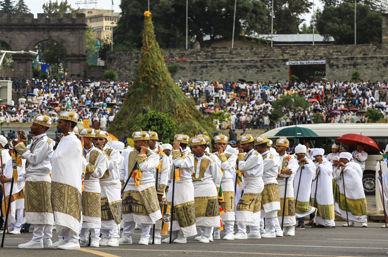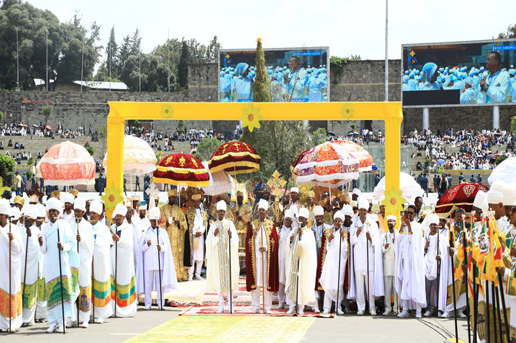
Experience Meskel: Ethiopia’s Unique Religious and Cultural Celebration
Ethiopia is a land of ancient traditions, rich history, and vibrant festivals that reflect its diverse culture. Among these festivals, Meskel stands out as one of the most significant, attracting visitors from all over the world. Celebrated annually on September 27 (or September 28 in leap years), Meskel is a religious holiday that commemorates the discovery of the True Cross, believed to be the cross on which Jesus Christ was crucified. The holiday is recognized by UNESCO as part of the world’s Intangible Cultural Heritage, making it an event not to be missed by travelers seeking to explore Ethiopia's deep spiritual roots.
The Significance of Meskel
Meskel, meaning "cross" in Ge'ez, has its origins in the 4th century. According to tradition, Saint Helena, mother of the Roman Emperor Constantine, was guided by a vision to light a fire that would lead her to the True Cross in Jerusalem. She is said to have found the cross at the location indicated by the smoke from her bonfire. The story resonates deeply with Ethiopian Orthodox Christians, and the discovery is honored with the Demera—a symbolic bonfire that is central to the Meskel celebrations.
Experiencing Expect
For travelers visiting Ethiopia during this festive period, Meskel offers a unique cultural and religious experience. The celebrations begin with the Demera bonfire, usually held on the evening of September 26, the eve of Meskel. In Addis Ababa, the capital city, thousands gather at Meskel Square, a prominent site in the city named after the festival, to witness the lighting of the towering pyre. The spectacle is accompanied by singing, chanting, and the rhythmic sounds of traditional Ethiopian music. Locals, dressed in vibrant, traditional Ethiopian attire, participate in the event, creating a colorful and lively atmosphere. Priests wearing ornate robes lead the ceremonies with prayers, hymns, and blessings. The air is filled with incense, adding to the spiritual ambiance of the event. The bonfire, lit by priests, is believed to symbolize the light that guided Saint Helena to the True Cross.
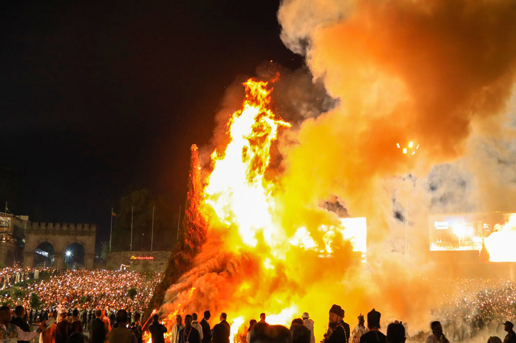
Meskel Beyond Addis Ababa
While Meskel Square in Addis Ababa is the focal point for the celebrations, travelers can also experience the festival in other parts of Ethiopia. In cities like Gondar, Lalibela, and Axum, which are rich in religious and historical significance, the Meskel festivities carry additional cultural weight. These cities are home to ancient churches and monasteries, some of which are UNESCO World Heritage Sites, offering visitors a deeper connection to Ethiopia’s Christian heritage. In the Ethiopian countryside, Meskel is celebrated with equal fervor, with communities gathering for smaller bonfire ceremonies, feasting, and dancing. Visiting these rural areas during Meskel gives travelers a more intimate experience of Ethiopian culture, away from the hustle and bustle of the capital..
Immersing in Ethiopian Culture
Meskel is more than just a religious event; it is a time for unity, reflection, and celebration. For travelers, this festival provides a window into Ethiopian traditions, spirituality, and hospitality. During Meskel, many families prepare special meals to share with loved ones, and it’s not uncommon for visitors to be invited to partake in the feasting. Traditional dishes like Doro wat (spicy chicken stew) and injera (Ethiopia’s staple flatbread) are served, along with Tej (honey wine) and coffee brewed in the traditional Ethiopian style. Exploring Addis Ababa or other regions during Meskel also allows travelers to visit iconic landmarks such as the National Museum of Ethiopia, Holy Trinity Cathedral, and the ancient rock-hewn churches of Lalibela. Each of these sites offers a glimpse into Ethiopia's rich religious history, adding depth to the Meskel experience.
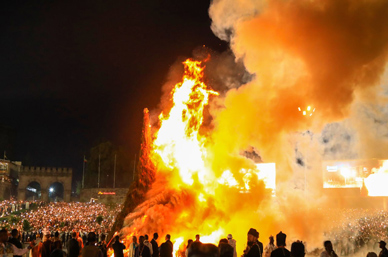
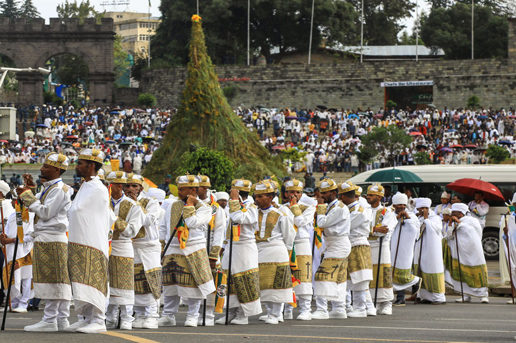
Tips for Travelers
If you’re planning to visit Ethiopia during Meskel, here are a few tips to make the most of your trip:
1. Book Accommodations Early: Since Meskel is one of Ethiopia's major holidays, hotels, and guesthouses in Addis Ababa and other key cities tend to fill up quickly. Plan your accommodation in advance.
2. Participate Respectfully: Meskel is a deeply spiritual holiday for Ethiopians. Dress modestly, especially if you plan to attend the religious ceremonies. Following the lead of locals is always a good way to show respect for traditions.
3. Explore Beyond Addis Ababa: While Addis Ababa’s Meskel celebrations are the most famous, consider visiting cities like Gondar, Lalibela, or Axum for a more historical experience.
4. Try the Local Cuisine: The holiday is also an excellent opportunity to taste traditional Ethiopian food, which plays a big role in the celebrations.
Why Meskel Should Be on Your Travel Calendar?
For travelers seeking an authentic cultural experience, Meskel offers a unique blend of spirituality, history, and community. It’s a time when Ethiopia comes alive with faith and celebration, giving visitors a chance to witness ancient traditions in a modern context. From the towering bonfires to the vibrant processions, Meskel provides an unforgettable glimpse into Ethiopian culture and Orthodox Christianity. Whether you're an adventurer, a history buff, or someone interested in spiritual journeys, Meskel is a celebration worth planning your trip around.
If you're planning to visit Ethiopia during this period, be prepared to immerse yourself in a celebration that unites the past with the present, and make sure Meskel is part of your itinerary!
